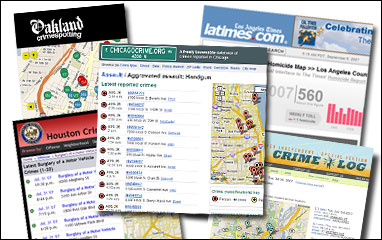January is the time for resolutions and goal-setting, so this might be a good time to take stock of your skills and get started on getting better at what you do.
I came across a post today on Melissa Worden’s blog in which she advocates putting the methods of online production into more hands. She poignantly writes:
I think one way (which is what HeraldTribune.com is doing now), is to put the tools, resources, and the ability to actually post the content via CMS in the hands of the reporters and editors.
Gulp.
Wait a minute. That’s MY job as a multimedia producer.
Gulp, indeed. So it’s time to ask yourself a few hard questions:
Do I have a training plan in place so I can regularly learn the latest multimedia skills?
(Remove yourself from the context of 40-somethings in the newsroom.) Do I really possess uncommon multimedia skills such as audio editing, photo editing, video, programming or others? Are my multimedia skills the equivalent of those possessed by the average tech savvy 16-year-old?
Do I spend most of my time cutting and pasting into a content-management system while exercising limited news judgment? Do I know only the most basic HTML? Am I really doing that much editorial decision-making?
The barrier to entry in the online news world will be rapidly widened as more folks get trained, more youngsters graduate and the tools of production become even easier to use. What are you doing to improve yourself?
As I write this post, there’s an instructor here at Valencia Community College walking around helping other students get their Java compilers working. I’m diving into object-oriented programming so I can get comfortable with from-scratch web development. I don’t want to be dependent on a content-management system or a ready-made set of tools such as Caspio or Zoho. At best, I’ll learn how to build my own if I want. At worst, I’ll have a better understanding of how it all works so I can better manage expectations, make stronger hiring decisions and have a broader understanding of what the online medium is capable of.
So take stock of your skills, and think about whether your job will be around in the next five years. Learn some CSS, do some for-real news editing, cut your own audio clips, write your own web application or learn how to get under the hood and tweak your blog yourself.
The alternative is to fall behind, and that’s something the new media market won’t tolerate for long.
 ComScore released its
ComScore released its 


